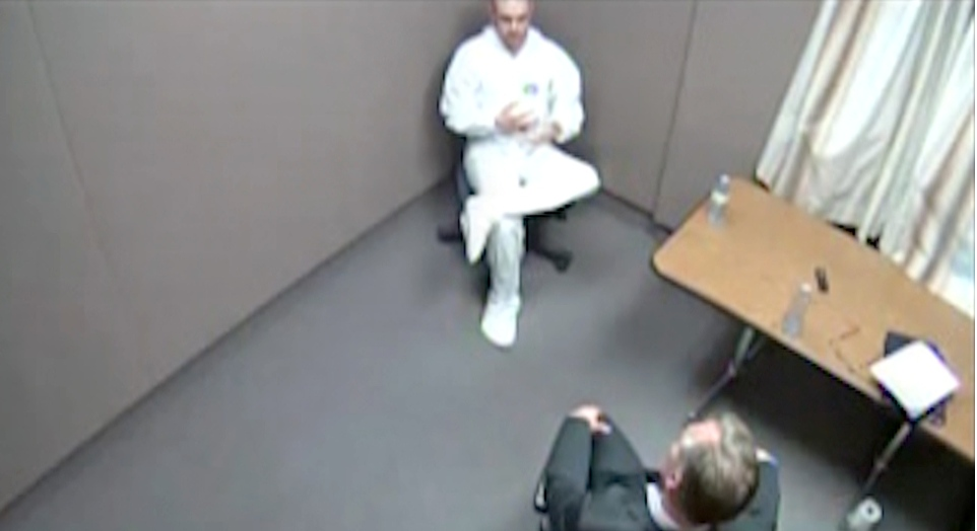Week five of the Minassian trial saw Yale psychiatrist Alexander Westphal testify for five days

“Let’s say you make a real cool app at work or you commit a mass killing … you’ve done something. You’ve accomplished something,” Alek Minassian told Dr. Alexander Westphal during an assessment interview, the court heard this week.
Westphal is the Yale psychiatrist who refused to testify unless demands that his video interviews with Minassian were sealed, an ultimatum Justice Anne Molloy of the Ontario Superior Court of Justice capitulated to last week.
His assessment of Minassian described the killer as not psychotic, but a man whose autism was so severe it “distorted his thinking in a way similar to psychosis.” That description was delivered at the start of the trial over a month ago when the defence gave its opening statement.
Westphal’s testimony began Monday for the defence. Westphal testified he evaluated Minassian at the behest of Dr. John Bradford, the forensic psychiatrist who originally assessed him. Bradford had also brought in Dr. Rebecca Chauhan, an expert in autism. Both Bradford and Chauhan have been witnesses at the trial.
Westphal testified he was asked to evaluate Minassian to see if his autism was relevant to his actions. Westphal conducted the Hare Psychopathy Checklist-Revised, or PCL-R, to rule out psychopathy as a possible motivator.
Westphal said what was particularly striking was that while Minassian didn’t seem remorseful, he also didn’t “relish” in his actions as a psychopath would. It was this lack of any emotion whatsoever, with Minassian seeing his victims as nothing more than “objects in a video game” with a “final score calculated on Encyclopedia Dramatica” (a website which features mass killers and the number of their victims) that led Westphal to believe Minassian’s thinking had psychosis-like distortions.
Given Westphal’s assessment of Minassian and its prominence in the not criminally responsible defence, it’s not surprising the Crown, which was expected to begin presenting its own experts this week, instead chose to cross-examine the doctor for three days.
Joseph Callaghan called into question the completeness of Westphal’s report, at one point highlighting a passage in it where the doctor wrote, “when asked to reflect on the morality of his actions, Mr. Minassian said, ‘I certainly have committed the act of murder and there isn’t any moral justification for it.’”
Callaghan asked Westphal how he could write that and then later in the report conclude that, “although Mr. Minassian understood the wrongness of his actions from an intellectual standpoint, he didn’t understand the wrongness of his actions from a moral standpoint.”
“He understands the rules. He knows what the rules are. It’s the stage beyond that, understanding the purpose behind that, why there are rules,” Westphal said. “He doesn’t get that. He can articulate the wrongfulness but he doesn’t understand the context for the wrongfulness, which is the agency and moral status of other individuals.”
Callaghan continued to press Westphal on what the Crown suggested were inconsistencies in Westphal’s own reports, such as testimony that Minassian’s autism was so severe that he had the social life of a child. Callaghan displayed text conversations between Minassian and his acquaintances, “Mike,” “Brandon” and “Zerno” (identified only by their first names), saying they demonstrated normal social interaction.
Westphal, appearing increasingly frustrated, answered repeatedly that Minassian’s high verbal skills masked severely stunted social skills. The psychiatrist drew a distinction between written answers (which he agreed Minassian scored highly on in assessments) and face-to-face conversations (where Minassian scored considerably lower). Westphal pointed to one passage in the messages Minassian sent Mike and Brandon. Minassian had opened each message with, “Hey man, long time no see.”
“He was sending out a salvo of identical messages to people he’d interacted with in his life,” Westphal testified.
“You don’t see this as a normal conversation between friends?” Callaghan asked.
“I’ve described what I thought was the subtext of what was going on there. I think Mr. Minassian got a little overwhelming towards the end of it,” Westphal said, referring to Minassian following up with an acquaintance after being stood up for a meeting. “I don’t see this as evidence of a rich and varied social life.”
Callaghan also said Minassian’s normal intelligence suggests his autism wasn’t severe. A visibly upset Westphal fired back that Callaghan’s characterization of autism being related to IQ was “not accurate.”
Callaghan also suggested that Minassian — an atheist — becoming familiar with the Bible while in jail because it gave him “hope” contradicted Westphal’s testimony that Minassian had very concrete thinking.
Minassian’s defence lawyer objected to a line of questioning where Callaghan asked if Minassian’s interpretations of the Bible were reasonable. Justice Molloy ruled that it was relevant, saying the Biblical conversations between the psychiatrist and the killer showed Minassian wasn’t “baffled” and that it showed him capable of engaging in esoteric conversation and waxing philosophical.
Westphal is expected to take the stand again today.
